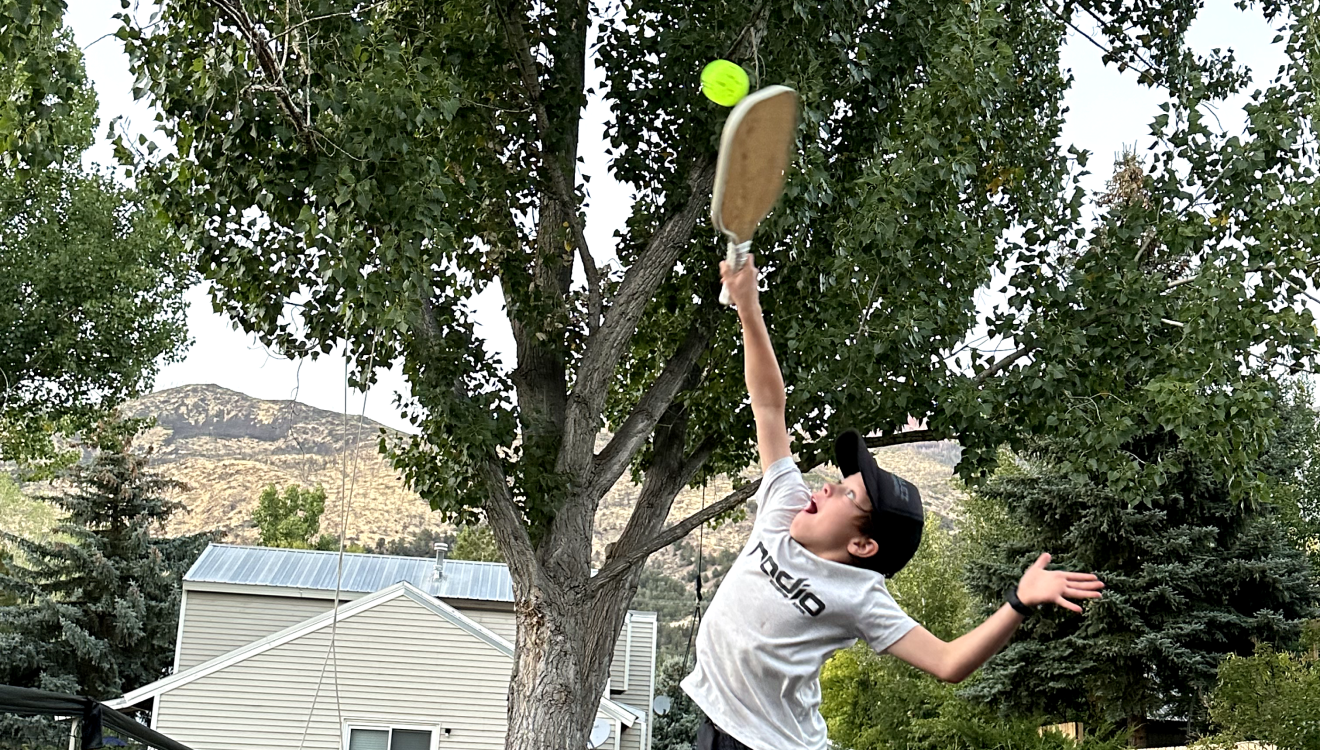
While children throw themselves into new experiences, sports, and hobbies almost weekly, adults rarely drop their inhibitions and learn new skills just for curiosity’s sake. So why not learn something new—preferably, active and outside—together as a family? If your family hasn’t already joined the pickleball craze—it’s America’s fastest-growing sport for three years and counting—it just might be the perfect game to learn as a family.
The game that combines tennis, badminton and ping pong is easy to learn, inherently social (four people can play at a time), low-impact, develops coordination, balance, and agility and doesn’t require a lot of equipment. While pervasive pickleball courts are taking over tennis facilities, parks and even decrepit malls, they’re also getting more crowded, which is one reason families are investing in portable nets (see below) and turning their driveways or streets into courts (you can play on any hard surface that’s 20 feet by 44 feet).
In the summer of 2023, the Davenports, who live in Colorado, bought a set and turned their cul-de-sac into a pickleball court. Then, they set out to learn the sport as a family. Amber, mom to Eli (10), Kas (7) and Tye (3), shares how it’s gone so far.
What has the learning process been like?
We started by just hitting a ball over the net back and forth, like ping pong—no rules and just for fun. We've since learned the rules—from Google and from friends—and we can play a full game with our oldest son, who is 9. He often beats us and gets quite competitive. Our middle son, who is 7, enjoys just hitting the ball back and forth, without rules or winners. So, we can cater to each child's personality. We’ll do a full tournament with the neighbors or just a casual rally.
What have you noticed about learning a new sport together as a family?
It's an exciting bonding experience to learn something together. We're not teaching our children—we're learning with them. They see us out of our physical comfort zone and how we react when we are playing a sport we haven't mastered. It's a good opportunity to model to them that you don't have to be excellent at something right away. The process has provided some good learning opportunities, namely that a game isn't always about winning or losing—the goal is having fun.
What are some physical and mental benefits?
The mental benefit of trying a new sport with our children is the connection piece. We're doing something new together, so it feels like we can learn as much from our kids as they can from us in the process. The physical benefits are being active and outside—it’s kept us outside a lot this summer. Another benefit of pickleball is that it's not like going on a hike or bike ride, which is often a time commitment. We can pick up the paddles for five or ten minutes, while dinner is on the stove, and have a quick rally.
Why do you think it's great to get out of our routines and challenge ourselves to learn something new?
Because there are a lot of fun activities to learn as a family once the children are of the age to take on a new physical skill. We typically do what we know and what we're used to, which is skiing, hiking, and biking. Our children have spent plenty of time on the trails growing up, and this is a nice antidote to that. We've found that learning a new sport or activity together will bring out a different level of confidence in our children because it takes them out of their comfort zone. It's fun for them to see us as novices, too! It also provides diversity of activity and motor skills, emotional challenges and lots of laughs.
Ready to play? The Trysen Pickleball Net Set has everything you need to get started. USA Pickleball offers instructions on how to set it up and outlines the complete rules for the game.
Whether it’s pickleball, mountain biking, ultimate frisbee or snowboarding, approaching new sports and activities together as a family allows everyone to reap the benefits of exercise while bonding and connecting on an even playing field—all while modeling healthy habits that, when formed early in life, are more likely to stick.

